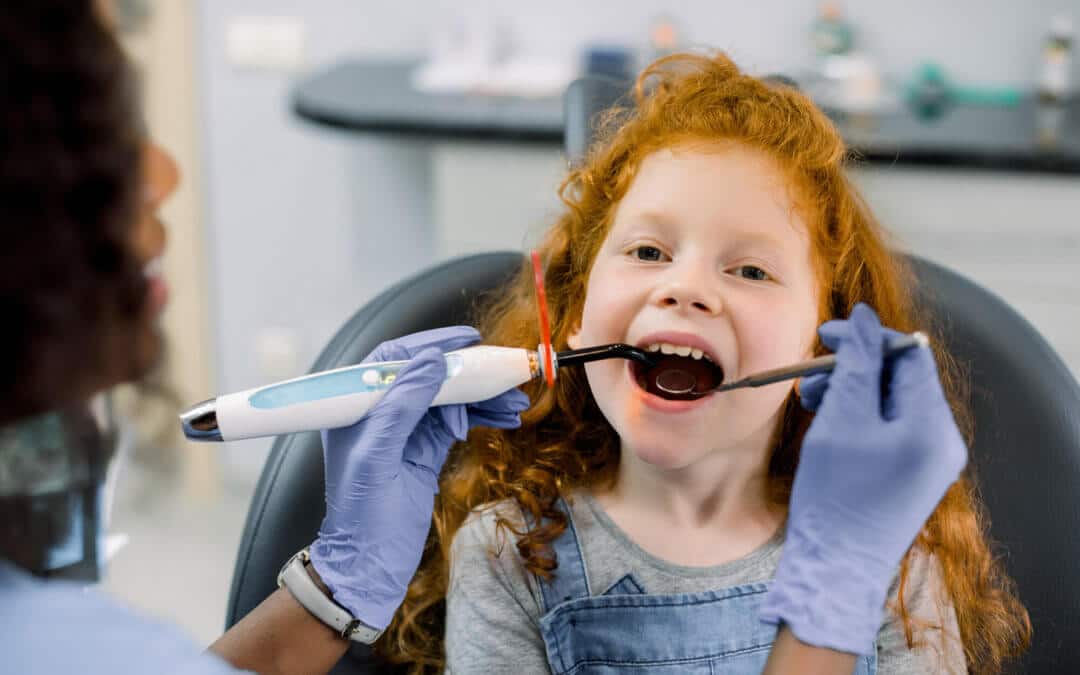No matter where you live or what your situation is, choosing a dentist is always a challenge. But if you don’t choose carefully, you end up with low-quality dental work at unfairly high prices.
Furthermore, it’s even harder when you’re choosing a dentist for your child. A bad dental experience during their childhood could cause a lifelong fear of dentistry.
We want to make sure that doesn’t happen to your child. So, we’ve created this helpful guide.
It details every factor you need to consider when choosing a Lexington pediatric dentist. Find the best pediatric dentist in your area using this checklist.
1. Pediatric Dentistry Vs Family Dentistry
First, is it worth it to take your child to a pediatric dentist? Or are you better off with a family dentist that treats you and your children?
Obviously, it seems more convenient to get all your family’s dental work done at the same location. Plus, if your current dentist accepts child patients, you won’t have to choose a new dentist at all.
But this usually isn’t the best option from your child’s point of view. After all, these offices are designed to be welcoming to adult clients.
To a child, such offices are boring and uncomfortable. Plus, they’re required to use their “indoor voices”—no fun allowed. This also means they’ll hear all the strange noises made by dental drills and other equipment.
Most children feel uncomfortable about dental visits even before they enter the office. Then, this unwelcoming environment adds more stress and anxiety to the experience.
The Advantage of Pediatric Dentistry
Conversely, entering a pediatric dentist’s office is a very different experience. Instead of unnerving silence and a room full of adults, your child sees other children smiling and playing as they wait. Here, a positive, kid-friendly experience is a priority, not an afterthought.
2. What Age Range Do They Treat?
Each pediatric dental practice treats children of a specific age range. Most of them treat children up to the age of 12. This is typically the age when the last baby tooth comes out.
However, the age at which a dentist starts treatment can vary. Children start gaining baby teeth at about 6 months of age and losing them at age 6.
As such, some pediatric dentists treat ages 6 and up while others accept patients from infancy. Likewise, some will only treat patients from infancy to age 6.
If you have very young children and/or plan to have more, choose a dentist who treats children of all ages. This way, you won’t have to switch their dentists as they grow up.
3. Do They Have Relevant Experience?
What do you call training without experience? You call it, “incomplete.”
There are some things a dentist can only learn through years of hands-on experience treating children. Without this experience, anyone claiming to specialize in pediatric dentistry is downright alarming. Before entrusting your children to these so-called “experts,” confirm that they have relevant experience.
Specifically, see how long this dentist has been treating children in your community. And by “dentist,” we mean the person, not the dental practice or group they associate with.
4. Do They Seem Friendly?
So far, the dentist you have in mind might seem to have high marks in all the right places. But there’s one thing this research can’t tell you: whether the staff is welcoming and friendly to children. To find this out, you must speak with a real live staff member.
It’s best to do this in person so you can see their smiling faces. Schedule a consultation and judge for yourself whether the practice is truly kid-friendly.
5. Is It Easy to Make an Appointment?
When you do schedule your consultation, beware of limited availability. That is, do they set your appointment for next week or for 3 months out?
They should be able to fit you in within the next three weeks. If they can’t, it means that their schedule is crammed full with other appointments. In that case, you’ll find it just as difficult to schedule future appointments, too.
6. Is Your Insurance Accepted?
Next, see if your insurance company offers a list of pediatric dentists who are covered by your plan. If not, call the dentists you’re considering and ask if your insurance is accepted. This might narrow down your options rather quickly.
Additionally, research your policy to find out what treatments are included in your plan and how much they cost. This way, you can compare the out-of-pocket prices of any treatments that aren’t covered. While this may not be important right now, it could be very important in the future.
Furthermore, you might not have dental insurance at all. Without insurance, a simple dental cleaning could cost up to $200. If you’re unable to obtain dental insurance, research free or low-cost dental services in your area.
7. Are They Close to Your Home?
Compared to the other points on this list, your commute time probably doesn’t seem that important. But remember that children often get nervous about their upcoming dental appointment. The longer your commute is, the longer this anxiety lasts.
Also, do you rely on this dentist for emergency treatment? If so, you mustn’t choose a dentist that’s 30+ minutes away from your house. Instead, choose a comparable dentist who’s a little bit closer.
8. What Do Their Previous Patients Say?
Once you find a dentist that meets all the criteria above, compare online reviews. This should confirm the good qualities of any dentist you have in mind.
However, it may also alert you to their shortcomings. Specifically, take note of any complaints that are repeated by several patients.
Do You Need a Lexington Pediatric Dentist?
This checklist makes it easy to find a Lexington pediatric dentist that’s perfect for your child. But there’s another way that’s even easier.
Namely, choose Pediatric Dentistry of Hamburg. As long as you live nearby, we meet all the criteria outlined above. Go here now to schedule an appointment with the best pediatric dentist in Lexington.


Recent Comments